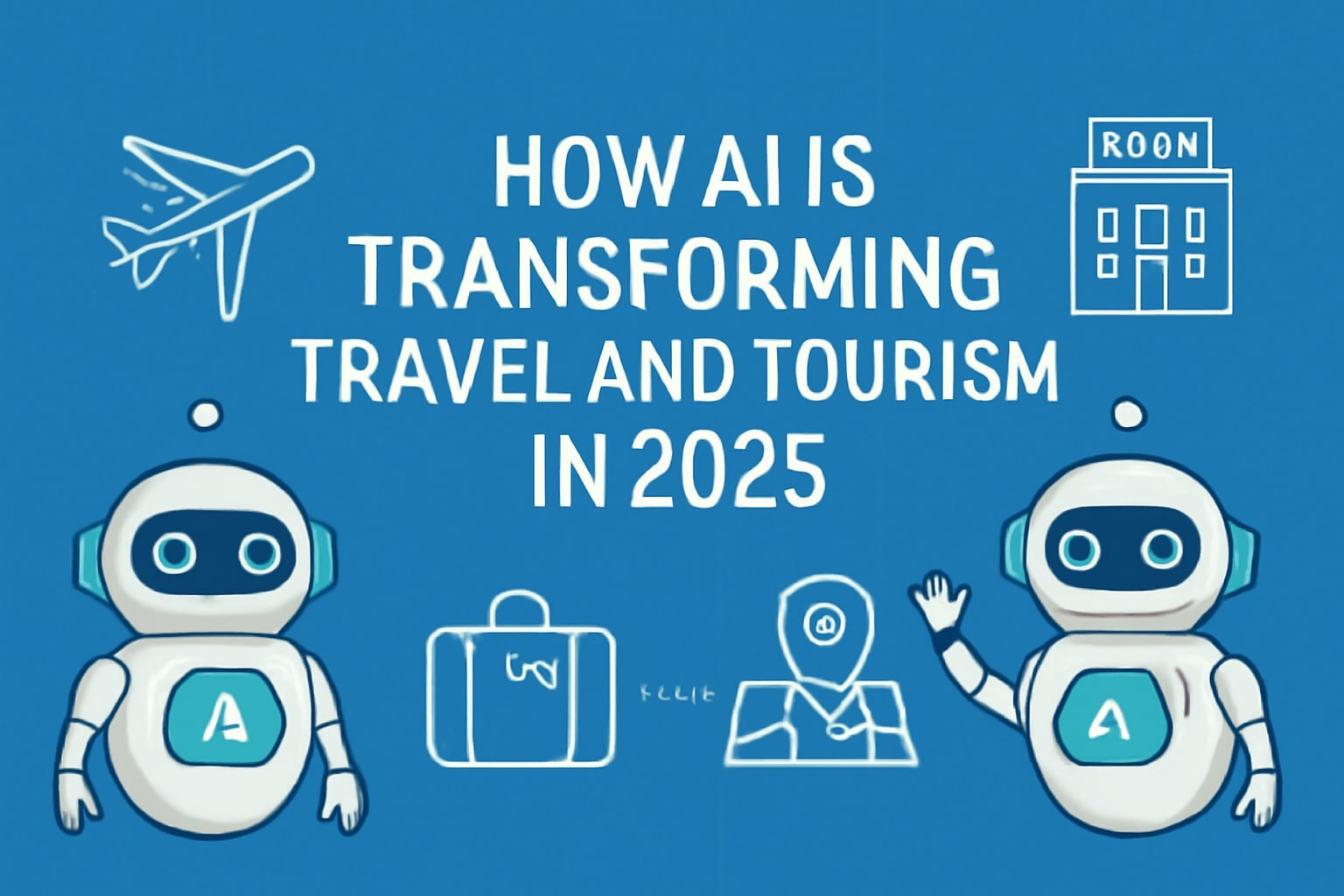AI in Travel and Tourism 2025 is reshaping the way we plan, book, and experience our journeys. From the moment you dream of a vacation to the day you return, Artificial Intelligence enhances personalization, efficiency, and even sustainability. Let’s explore how AI is revolutionizing the travel industry this year.
1. Hyper-Personalized Travel Planning
How it works: AI chatbots and recommendation engines act as digital travel agents. By analyzing your past trips, preferences (such as “adventure,” “luxury,” or “culture”), and even your social media activity, they suggest destinations, activities, and tailored itineraries.
Example: Apps like Hopper and Kayak predict flight and hotel prices with remarkable accuracy, guiding travelers on the best time to book. Airbnb’s AI recommends unique stays that match your style and budget.
2. Streamlined and Contactless Journeys
How it works: Today’s travelers expect convenience, and AI is delivering frictionless, touch-free experiences across airports and hotels.
- Airports: Facial recognition speeds up check-in, baggage drop, and boarding, reducing queues and physical contact.
- Hotels: AI-powered kiosks and mobile check-in with digital keys eliminate front desk wait times.
3. Dynamic Pricing and Demand Forecasting
How it works: Airlines and hotels apply AI algorithms to massive datasets, including weather, local events, and search trends, to adjust prices in real time. This maximizes revenue while offering travelers better insights.
Benefit for travelers: Booking platforms use the same AI insights to help users find the best deals and predict the right moment to make a purchase.
4. AI-Powered Customer Service
How it works: 24/7 AI chatbots handle common travel queries such as flight changes, baggage information, and hotel requests. This frees human agents to solve more complex problems.
Example: KLM’s BlueBot (BB) on WhatsApp manages check-in, provides flight updates, and answers hundreds of questions instantly.
5. Smart Baggage Handling
How it works: AI and computer vision track luggage across its journey, significantly reducing lost bags. Some airports even use robots behind the scenes to move luggage efficiently and securely.
6. Personalized In-Destination Experiences
How it works: Once you arrive, AI continues to enhance your trip. Apps deliver real-time suggestions for restaurants, hidden attractions, and activities based on your location, interests, and time of day.
Example: Google Maps AI recommends coffee shops in the morning, sightseeing spots in the afternoon, and bars at night—all based on your travel patterns.
7. Sustainable and Smart Tourism Management
How it works: Cities and tourism boards use AI analytics to track visitor flows and reduce overcrowding. By suggesting alternative destinations and optimal visiting times, AI helps prevent overtourism while supporting sustainable travel practices.
The Future: AI Travel Companions
Imagine an AI companion that manages your entire trip in real time: automatically rebooking a cancelled flight, recommending a new restaurant when plans change, and translating menus on the spot. This future isn’t far away—AI in Travel and Tourism 2025 is paving the way for stress-free, highly personalized journeys.
